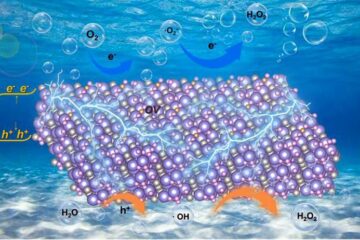Storytelling Program Improves Lives of People with Alzheimer’s

Nearly 16 million Americans will be diagnosed with Alzheimer’s disease or another type of dementia by 2050, according to the Alzheimer’s Association.
Symptoms include mood and behavior changes, disorientation, memory loss and difficulty walking and speaking. The effects of anti-dementia drugs on patients’ emotions and behaviors are inconsistent.
Now, University of Missouri researchers have found that participation in TimeSlips, a drug-free, creative storytelling intervention, improves communication skills and positive affect in persons with dementia.
Lorraine Phillips, John A. Hartford Foundation Claire M. Fagin Fellow and assistant professor in the Sinclair School of Nursing, found that participation in TimeSlips improves communication and facilitates positive emotions in persons with dementia.
TimeSlips is a nationally recognized storytelling program for people with dementia that encourages participants to use their imaginations to create short stories as a group. Rather than relying on factual recall, participants respond verbally to humorous images presented by facilitators who record the responses and read narratives to further develop or end the stories
“TimeSlips provides rich, engaging opportunities for persons with dementia to interact with others while exercising their individual strengths,” said Lorraine Phillips, assistant professor in the Sinclair School of Nursing. “It encourages participants to be actively involved and to experience moments of recognition, creation and celebration. Meaningful activities, such as TimeSlips, promote positive social environments that are central to person-centered care.”
The storytelling program is an easy and affordable activity for long-term care facilities to implement and allows caregivers to interact with multiple residents at a time, Phillips said.
A photo used during storytelling sessions.
“TimeSlips offers a stimulating alternative to typical activities in long-term care facilities,” Phillips said. “It is an effective and simple option for care providers, especially those who lack resources or skills required for art, music or other creative interventions.”
In the study, Phillips and her colleagues delivered the TimeSlips intervention in one-hour sessions, held twice weekly for six consecutive weeks. The results included increased expressions of pleasure and initiation of social communication. Improvements in participants’ affect lasted several weeks following the final session. The intervention is acceptable for people with mild to moderate dementia, Phillips said.
Phillips worked with Stephanie Reid-Arndt, assistant professor of health psychology in the School of Health Professions, and Youngju Pak, assistant professor of health management and informatics in the School of Medicine. The study, “Effects of a Creative Expression Intervention on Emotions, Communication, and Quality of Life in Persons with Dementia” was published in Nursing Research.
For more information about training and materials, visit: http://www.timeslips.org/
Media Contact
More Information:
http://www.Missouri.eduAll latest news from the category: Studies and Analyses
innovations-report maintains a wealth of in-depth studies and analyses from a variety of subject areas including business and finance, medicine and pharmacology, ecology and the environment, energy, communications and media, transportation, work, family and leisure.
Newest articles

New SPECT/CT technique shows impressive biomarker identification
…offers increased access for prostate cancer patients. A novel SPECT/CT acquisition method can accurately detect radiopharmaceutical biodistribution in a convenient manner for prostate cancer patients, opening the door for more…

How 3D printers can give robots a soft touch
Soft skin coverings and touch sensors have emerged as a promising feature for robots that are both safer and more intuitive for human interaction, but they are expensive and difficult…

Oxygen vacancies mediated ultrathin Bi4O5Br2 nanosheets
… as efficient piezocatalyst for synthesis of H2O2 from pure water. As an important chemical raw material, hydrogen peroxide (H2O2) is widely applied in various aspects of industry and life….





















